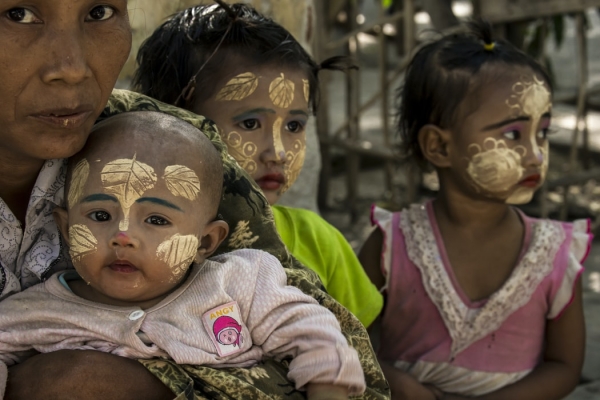The military coup that took place on the 1st of February with the arrest of democratically elected leader Aung San Suu Kyi has brought the country back to a state of emergency. Humanitarian operations have been impeded and in many cases outright suspended, as aid groups and NGOs face mounting pressure and difficulties in getting access to the country. In particular, many fear the military could exercise more control over the way aid agencies operate and in selecting those who receive help, thereby violating the humanitarian principle of neutrality and putting at risk the lives of some 330,000 displaced civilians who rely on humanitarian aid to survive.
Since August 2017, Myanmar has been the witness of one of the largest humanitarian crises in contemporary history with more than 700,000 people displaced, mostly in the Rakhine state. The Rohingya, a Muslim minority in Myanmar, are considered illegal immigrants from Bangladesh and are therefore persecuted by the government. In 2018, violence escalated between the Tatmadaw (the national armed forces of Myanmar) and the Arakan Army (AA), an armed ethnic group which seeks self-determination for the people of the Rakhine state. Clashes over the years have resulted in dreadful human rights violations, threatening the lives of more than 600,000 Rohingyas in the region. Humanitarian aid groups have always been familiar in facing heavy restrictions to their activities, and have often had to negotiate their way in with government officials. However, following the coup, this already precarious situation has worsened, as many agencies may now be considered as “oppositional voices” by the military junta. According to Gabrielle Aron, an independent analyst based in Myanmar, “some of the demands by the military [from now on] will be to such an extent and in such violation of [humanitarian] principles that it would require serious consideration of more drastic measures”.
The impact of such “ethical dilemmas” on humanitarian operations is still unclear. Nonetheless, aid organisations are concentrating their efforts on protecting local staff members, and are calling for targeted sanctions and arms embargoes to pressure the military into returning the country to civilian rule. Although the military has said it wants to restore “eternal peace”, the UN Security Council issued a statement on the 4th of February calling for the continued support of the democratic transition, as well as the prompt release of the detained democratic leaders.
To know more, please visit:
https://www.thenewhumanitarian.org/news/2021/2/2/myanmar-coup-humanitarian-aid-access-conflict-peace
https://www.icrc.org/en/where-we-work/asia-pacific/myanmar/myanmar-conflict
https://www.acaps.org/country/myanmar/crisis/rakhine-conflict
https://www.un.org/press/en/2021/sc14430.doc.htm
Author: Sara Mariani; Editor: Maxime Grenier







